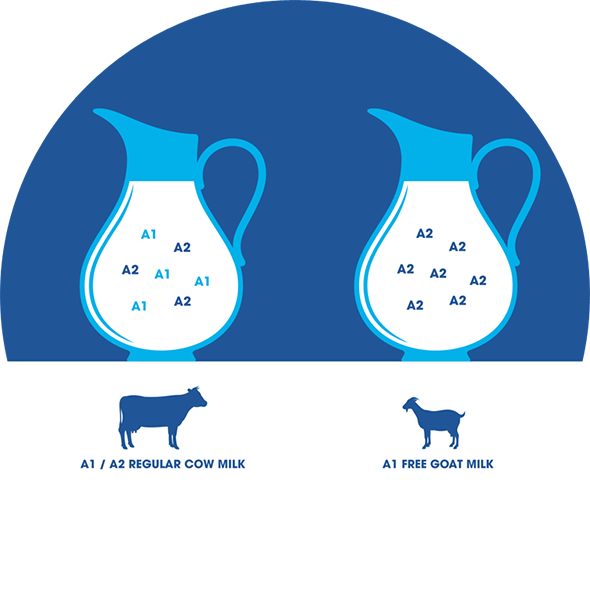
- It has been approximated that 1-2% of the adult population and 8% of children aged 3 and under suffer from cow milk allergy [ix].
- Cow milk contains the A1 version of a protein called beta-casein. A1 type of beta-casein can cause an inflammatory response in the digestive system of some people. This may result in abdominal discomfort, cramping and bloating. Research has shown that A1 and A2 proteins digest differently. Goat milk contains naturally high levels of A2 type of beta-casein [x] and absent of A1 type of beta-casein.
- Alpha-s1-casein is known to be one of the allergenic proteins present in milk [xi],[xii] . Both cow milk and goat milk contain alpha-s1 casein, but goat milk only has an average of 4% alpha S1 Casein compared to 36% in cow milk.